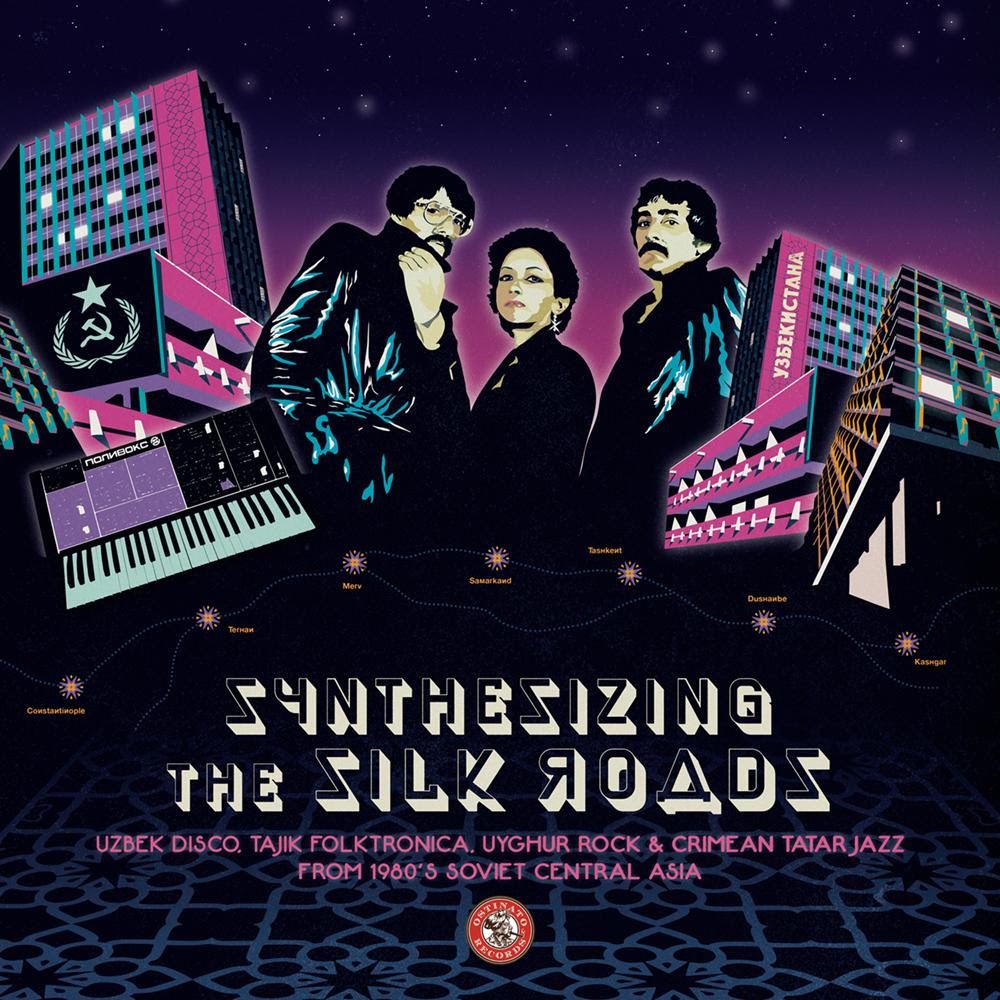Various artists
Synthesizing the Silk Roads: Uzbek Disco, Tajik Folktronica, Uyghur Rock & Crimean Tatar Jazz from 1980s Soviet Central Asia
OSTINATO
When Lenny Kaye researched and released his earliest volumes of his psych-rock comps Nuggets, one of the things he found was that every nook and cranny within America that had its klatch of garage bands—even acts and areas mere miles away from another—was as unique as a fingerprint. Similarly, countries such as Tajikistan and Uzbekistan don’t have many miles between them, but the obtuse brands of hot neo-disco and cold new wave, machine-generated rhythmic post-rock, and weird jazz that existed within that geographic region throughout the whole of the 1980s sound as if they existed planets apart.
Needless to say there’s a deeply curious need to graze the happily overstuffed liner notes on Ostinato Records’s new collection of some of the era’s most remarkable recordings to find out how Deep Purple ruled after Nikita Khrushchev opened up the Soviet music industry to club life, and how the glittering “disco mafia” reigned supreme in the 1970s. At 15 tracks, Synthesizing the Silk Roads is way too short when you consider how vividly different Nasiba Abdullaeva’s “Aarezoo Gom Kardam” is from Angelina Petrosova’s “Tantsuyushchiy Ostrov,” with the former’s clomping rhythms, cheesy synth swirls, and tuneful nasal vocals contrasting with the latter’s buzzing sequencer, compu-generated pulse, and thumbed discoid bass.
Let’s not even bring up Original’s “Bu Nima Bu (What’s This)” and “Sen Qaidan Bilasan” with their boinging, swishy Moroder overtones and rough, boyish vocals. Yet, like Nuggets, you completely understand that each of these Soviet Central Asian musicians are, almost literally, one nation under one groove.







